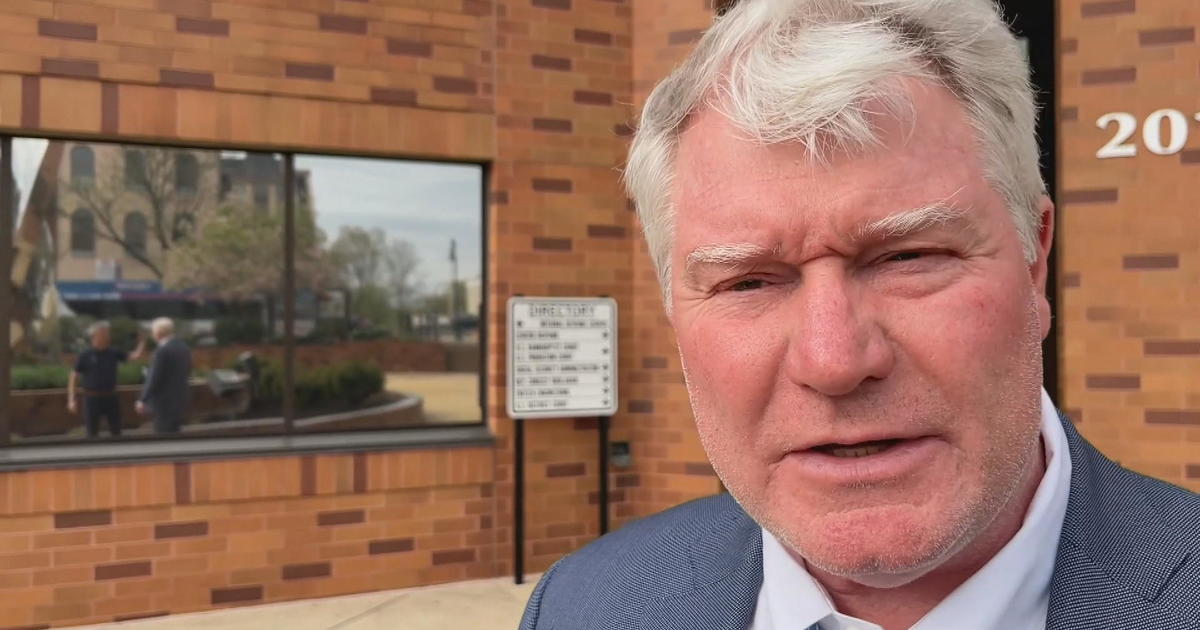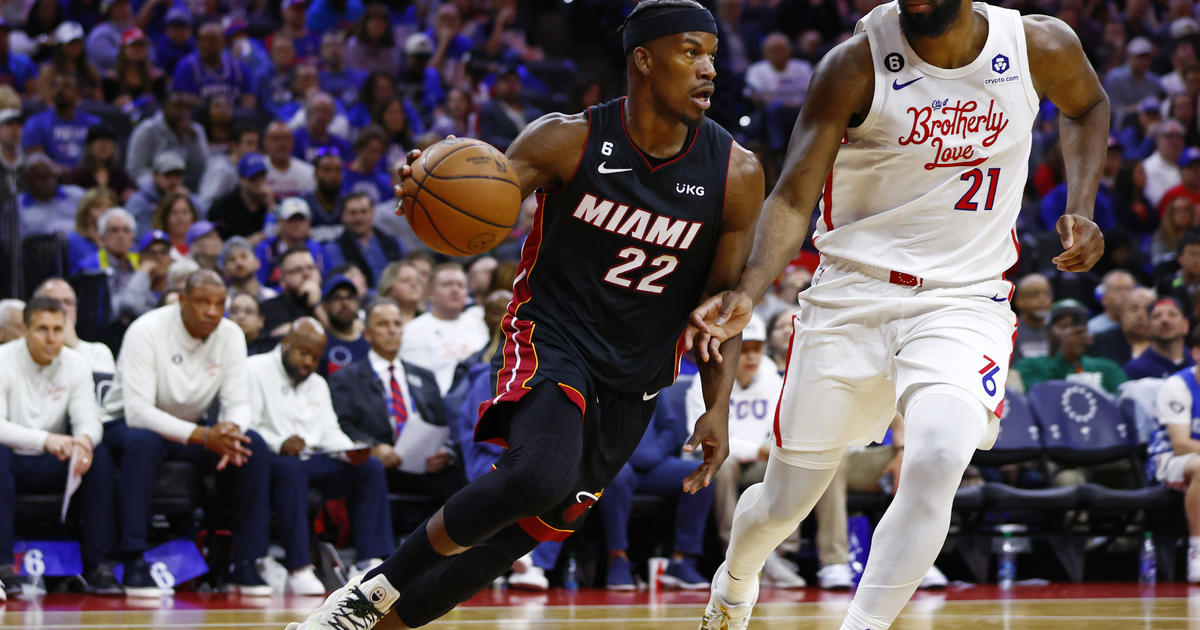Blog: Good Guys And Golf
By Bill Campbell
Doug Collins
A new Doug Collins story has replaced the rumors about his possible departure. Now we know that he's leaving. The 76ers managed to conclude the home part of their season downing Cleveland, 91-77, but Collins is not long for the Wells Fargo sidelines. He's decided to go – and I view Collins' decision to leave the 76ers with disappointment and regret.
Doug Collins seems to have trouble lasting through his third season no matter where he hangs his hat. He coached three seasons in Chicago, two-and-a-half in Detroit, two in Washington. He's completing his third season in Philadelphia and it looks like he got no opposition from anyone in the front office as he decided to end his time here when the Sixers play their last game. According to one NBA source, "They really want to avoid a backlash of the fans siding with Doug. They will be happy if Doug makes the call and it works out that he leaves." The team really wants to avoid a public relations problem so the front office wouldn't axe the former player/favorite son guy who held the team together during a very tough year. The Sixers have had more than enough bad press to last a lifetime, with the Bynum debacle and multiple injuries that haunted the team this year which will be its second 50-game loss season in the last fifteen years. Since the group headed by Joshua Harris bought the team before the 2011-12 season, hardly anything has worked out as planned and things have gone from bad to worse. I suspect Doug has been wrung out and he's ready for a rest.
Rightly or wrongly, Collins is viewed as demanding everyone – on the team and in the front office – to burn the candle at both ends. But that has to be daunting even for him as he approaches his 62nd birthday. One of his assistants, Brian Jones, who had coached with Doug at Detroit and Washington, has resigned to join Doug's son, Chris, on the coaching staff at Northwestern. Doug may find following his son's career there to be enough of a basketball outlet for him next year. No matter how your feel about him as the Sixers' coach, I know Collins well. He's a good guy and I wish him all the best.
Roy Halladay
Only 12 pitchers in the history of baseball have won 200 games in their careers. Now that circle includes the name of another good guy, Roy Halladay. After what surely was the worst spring training of his career, Halladay silenced the Miami Marlins the other day with 8 super innings. And while there was a temptation to pull him a few times during the game, Charley Manuel left him in. At game's end, he became the first pitcher to win Number 200 in a Phillies uniform since Steve Carlton in 1978. His teammates presented him with a magnum of champagne to commemorate the occasion. In typical low-key fashion, Halladay said, "I'd rather win a World Series game." Wouldn't we all?
Notes from The Masters
Among the problems at The Masters, besides Tiger Woods' problems in where to legally place his ball, was a really bad round by veteran Phil Mickelson, who shot 77 on Friday. Afterwards Mickelson commented, "I just played terrible. There is no way around it. I'm not hitting very good shots and I'm missing it in bad spots and not really knowing which side I'm going to miss it on. It's certainly disappointing." Another seasoned pro, 54 year old Fred Couples, also had a tough time and admitted, "I was very mediocre. I made a lot of pars but I had just some mediocre swings." Couples was gaining on the leaders and became a gallery darling until running into his problems midway through the third round. His final test was on the 17th which he described as a "comedy of errors." He triple-bogied the hole when he hit his approach shot over the ground and sand. It was downhill from there. Couples also felt responsible for his playing partner Justin Day's three putt. But Day, Adam Scott and Marc Leishner each had a chance to win for the first time for Australia as the event roared to a dramatic close on Sunday.
In the third round on Saturday, 14-year-old Guan Tian Lang of China didn't make birdie all day, taking a 77 for the round. But he had a large crowd that saw him make a tough putt on 18 for par. "Thanks to everyone who reacted," he said, "I'm so glad I made that putt." This young player also did something that Jack Nicklaus, Ben Crenshaw, Phil Mickelson, Tiger Woods and Jay Segal did before him: he won the low amateur honors in his first appearance at Augusta with a 75 and a final score of 300. Lang was the only amateur to make the 36 hole cut and placed 58th. I'm sure we'll be seeing more of him.
Rory McIlroy was 1 under for his round and just 3 strikes off the lead through 6 holes on the final day but he played his last to 8 over, finishing well behind at 221. "I'm very disappointed," said McIlroy, "I feel like I have been playing well coming in and it's becoming very frustrating." But Tiger Woods had to be the most frustrated of all at The Masters last week. Entering the third round tied with five other players at 3-under, Woods played a mediocre round at best and ended the day learning of a two-shot penalty for an improper drop the day before. Woods, who has been digging out from golf fans' bad graces, suffered a bit of a setback thanks to that move. The pros had their tough times last week. But let's talk about Sunday.
Since 1990, there have been three sudden death playoffs at the Masters: Angel Cabrera over King Perry and Chad Campbell on the second hole in 1990, and Bubba Watson defeating Louis Oosterhizen and Adam Scott. Then there was last Sunday when the Aussies finally had their day in a thriller. Rainy conditions made it difficult for many of the players to grip a club or putter. But the Australian, Adam Scott, battled it out on two sudden death holes with the Argentinian, Angel Cabrera. Scott pulling it out after Cabrera missed a relatively easy putt on the second hole. Cabrera, caddied by one of his sons, was a gracious loser and only enhanced my perception of him as one of the class acts on the tour. But Scott held firm throughout the match and didn't let his nerves overtake him. As he took in the victory Scott said, "There have been so many great Aussies to be the first and so many have fallen short of it. If it happens, great. If it doesn't, then we just keep playing along." That he did – all the way to a green jacket. I thought it was one of the great finishes in Masters' history.
I once saw Adam Scott play in the flesh. I remember thinking that he stood up to the ball better than anyone on the tour and had a classic swing. I've been following him since and was really pulling hard for him to win The Masters on Sunday. Not that there is anything wrong with Angel Cabrera's game. He's a great player, a true competitor, and the two made it a thrilling match to the end. CBS did its usual solid job in bringing the event to so many people around the globe. The skills of Scott and Cabrera should make us all appreciate the consummate skill of the guys who so splendidly play this treacherous game.
Coaching Salaries
Much has been recorded, both before and since the NCAA post-season tournament, about the healthy salaries paid to college basketball coaches around the country. Due to extensions granted 62-year-old Duke coach, Mike Krzyzewski, he has the chance to reach the left estate of $7 million before his 70th birthday. Almost the same can be said for those basketball stalwarts at Louisville and Kentucky, Rick Pitino and John Calipari, respectively. There are many, however, whose names are never mentioned in the category of wealthy coaches but who are paid quite well: such as Kansas' Bill Self, whose paycheck figures out to be over $4,750.000; Michigan State's Tom Izzo at $3,220,000; Florida's Billy Danson at $3,689,000. These salary figures were compiled by USA Today from 62 of the 68 competing schools who make up the NCAA. As I read them it occurred to me that the story would be of more local interest if the salaries of some of the "City Six" coaches were considered.
According to the list, which focuses strictly upon coaches who gained entrance to the 2013 NCAA tourney, Villanova basketball coach, Jay Wright, earns $2,290,000. He ranks tenth. Temple's Fran Dunphy ranked fortieth at $725,000 and Dr. John Giannini of La Salle was forty-ninth at $426,000. It goes without saying that those who coach basketball at St. Joe's, Penn and Drexel have more than one incentive worth fighting for besides school loyalty though they may be paid less than these three. John Beilein of Michigan failed to make any kind of ranking but I find it hard to believe that the coach of the team that took Louisville into the final game for the title wasn't well paid. The average salary of these coaches is a bit upward this year in contrast to a decline for those dealing in academic spending – which says something about priorities, doesn't it?
Dawn Staley
Among the Naismith Basketball Memorial Hall of Fame inductees this season will be Dawn Staley, who grew up in the Raymond Rosen projects at 25th and Diamond in North Philly. She's the girl who arguably did more for women's basketball than anyone, ever. Last Monday, in the ballroom of the Marriott Marquis in Atlanta, she spoke about the challenges she faced as a kid from the projects. Although she participated in just about every sport growing up, Staley said that she more than survived those years because "basketball chose me." The game chose her and took her from Dobbins Tech to the University of Virginia, to three Final Fours, two National Player of the Year gold medals, the ABL, the WNBA and then to head coaching jobs at Temple and South Carolina. Staley has, without doubt, compiled one of the great resumes in basketball history. Addressing her induction into the Hall alongside many other notables, Staley said, "This means the most because you look at the greats who have contributed so much to the game. I just truly love it. I try to repay that, to keep on going through coaching and giving other little kids, girls and boys who are very positive about what they do, how to be a success."
During the 1996 Olympics in Atlanta, Dawn Staley was the point guard for, arguably, the most important team in the history of women's team sports. The impact of that U.S. team, which posted a 60-0 records and won a gold medal, cannot be overstated. It piqued the interest of players and fans alike and encouraged athletic girls to aspire to play hard and win. In all, Dawn Staley led the Virginia Cavaliers to three Final Four appearances. She holds the NCAA record for most steals (454). She's the only college player to record 2,000 points, 700 assists and 400 steals. She was a three-time olympic gold medalist (1996, 2000, 2004). Professionally, she is a five-time WNBA All Star, two time ABL All Star, coached Temple for 8 years and has a career record of 172-80.
Contributions like those made by Dawn Staley resonate in the growth of all women's team sports since the 1990's, particularly that of women's college basketball. The sport now draws large crowds and TV ratings. Next to pro football and men's basketball, the ladies' game is the NCAA's most popular sport. Much of that recognition should be credited to Dawn Staley. If anyone deserves a spot in the Basketball Hall of Fame, she does. Way to go.



